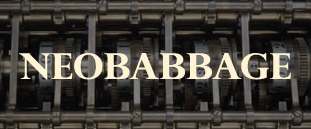 Every time someone tells me to join a social networking site I resist. First it was MySpace. Didn't want to do it. I guess I thought it was stupid. Then I started to miss out on important social things, and my favourite bands were releasing 'MySpace only' songs. I begrudgingly joined and I've more-or-less hated it ever since. It's a real pain in the arse to use, it's ugly and who thought it was a good idea to give people with no web design skills the ability to infinitely customise their pages?
Every time someone tells me to join a social networking site I resist. First it was MySpace. Didn't want to do it. I guess I thought it was stupid. Then I started to miss out on important social things, and my favourite bands were releasing 'MySpace only' songs. I begrudgingly joined and I've more-or-less hated it ever since. It's a real pain in the arse to use, it's ugly and who thought it was a good idea to give people with no web design skills the ability to infinitely customise their pages?I don't use MySpace anymore. I'm totally over it.
It took me a long time to be convinced of the merits of Facebook, but eventually I got there. Facebook actually fixes all the problems I've got with MySpace, so I like it much better. Pages are pretty standard across the board, but you can add personal applications.
Allow me a moment of self-indulgence as I show you my flair board:
 Thankyou. I do love it so.
Thankyou. I do love it so.Social networks are handy, because it saves room in my mobile phone. If I want to keep in contact with someone but don't particularly need to talk to the all the time then I can maintain the contact online. Also if I were to lose my mobile, my social network can act as a really handy backup.
The problem is that if everyone moves to a new social network (like they did with MySpace to Facebook) I'll have to move and remake all those old contacts again.
Another issue is privacy. Who is my 'friend' exactly? That girl from the grade above me who always flirted really innapropriately - to everybody. Do I want her knowing my email address? NO! Did she try and add me as a friend? Yes. Unfortunately.
Okay, so that example was a bit obvious, but what about your workmate from that job you had at the supermarket? Do you want him to know your mobile number? Or that friend-of-a-friend that you often see at parties?
Additionally, Facebook relies on people using their real names. If I'm trying to keep my real name a secret this can pose a problem, especially when I add friends I've made over the internet and I show up on stranger's "people you might know" lists.
Sometimes I resent being pestered by notifications that that guy from highschool has posted more party photos, but ultimately I feel like it's worth it. I've rediscovered some really good friends from as far back as Primary School. Also when I need to leave someone a note a social network is a better place than most to do it.
